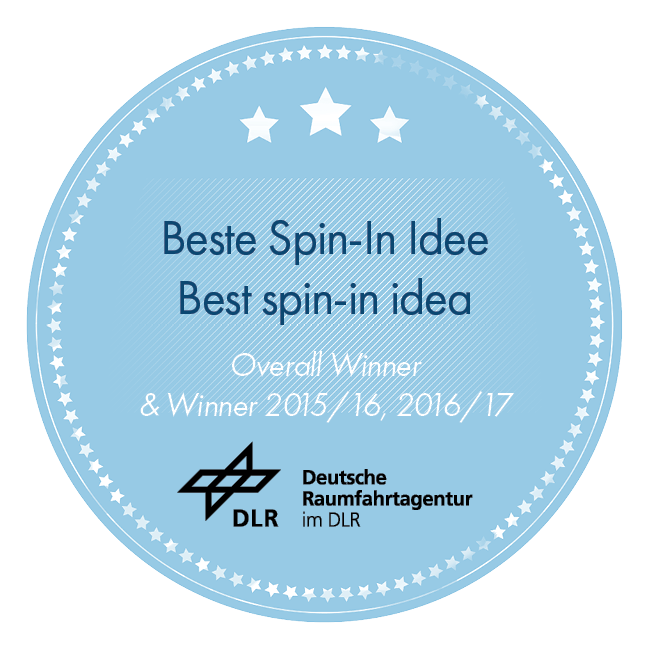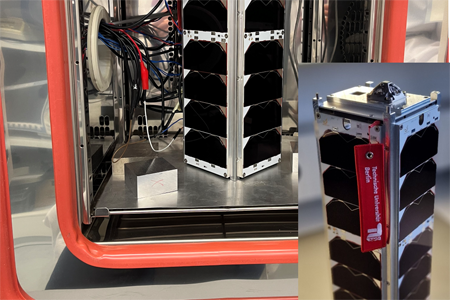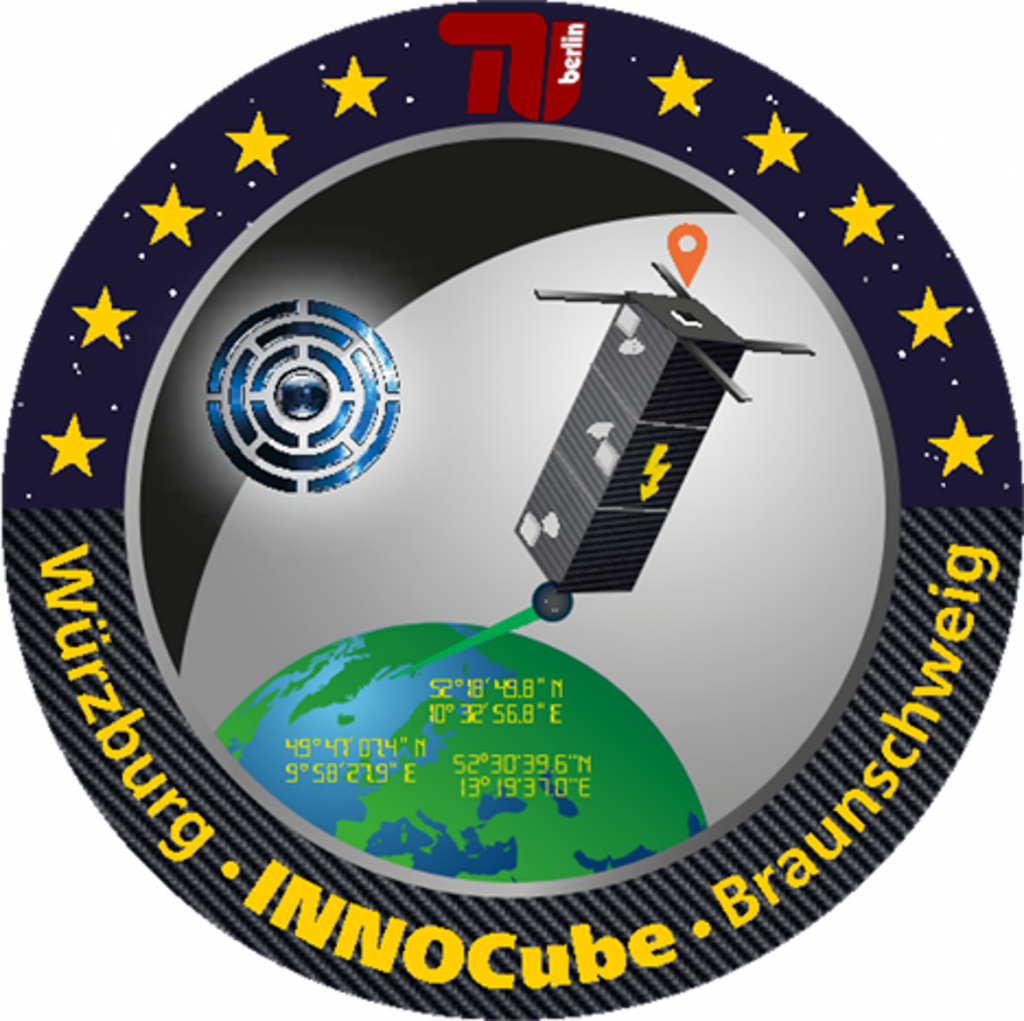
InnoCube = Wall#E & Skith

Initial submission
Skith – Skip the Harness (Harnessless Satellite)
The harness for satellites has been necessary so far but also costly, heavy and a major risk factor.
Skith aims to create the first wireless satellite, by using short-range, high-speed real-time miniature radio communication links. By combining modular and fault-tolerant software with ultra-wideband technology from Industry 4.0, a robust and adaptable system will be created.
Wall#E – Fibre-Reinforced Spacecraft Walls for Storing Energy
The idea behind Wall#E involves integrating energy storage functions into the support structures of spacecraft, which will significantly reduce the mass and volume of satellites without sacrificing performance.
To this end, Wall#E utilises fibre-reinforced structures (which enjoy more and more popularity in aerospace engineering) infiltrated with innovative solid-state battery materials. While this project’s initial focus is on satellites, the underlying concept can easily be adapted to launch systems, space stations, and groundbased e-mobility applications.
Development
We were able to realise a research idea from scratch through the funding and support that we got from the German Space Agency/DLR. By winning the INNOspace Masters competition, we were able to build and test a fundamentally new type of satellite, based on a radically different technology. INNOspace Masters enabled the partnership between UniW and TUB to initiate the InnoCube satellite in order to verify the potential of our technology in space.
- TRL (Technical Readiness Level) SKith from 4/5 now-6/7 in EFM InnoCube Satellite, Wall#E from 1 now 5 in EFM InnoCube Satellite
- Team: from 2 FTE plus 2 students assistants now 4 FTE plus 2 students assistants
- Teams responsible for the single projects teamed up for the satellite project InnoCube funded by DLR
- 5 publications
- Fields of application: Meteorology & Climate, Science & Technology, Telecommunications
- SKITH wireless bus has been accepted for space usage by the German Federal Network Agency
Appraisal
For the INNOcube project, two DLR Challenge winners and overall winners have joined forces to realise a completely novel satellite concept. Two spin-in ideas are combined in one project. The project thus embodies two core objectives of the DLR Challenge and the INNOspace Master: promoting technology transfers between space and non-space, as well as collaborative research projects.
